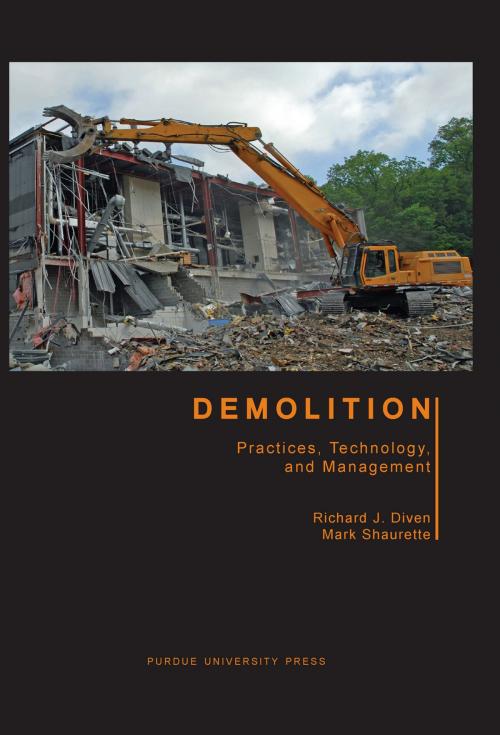Demolition: Practices, Technology, and Management
Practices, Technology, and Management
Nonfiction, Science & Nature, Technology, Engineering, Civil, Art & Architecture, Architecture| Author: | Richard J. Diven, Mark Shaurette | ISBN: | 9781612490038 |
| Publisher: | Purdue University Press | Publication: | January 7, 2011 |
| Imprint: | Purdue University Press | Language: | English |
| Author: | Richard J. Diven, Mark Shaurette |
| ISBN: | 9781612490038 |
| Publisher: | Purdue University Press |
| Publication: | January 7, 2011 |
| Imprint: | Purdue University Press |
| Language: | English |
As the built environment ages, demolition has become a rapidly growing industry offering major employment opportunities. During the 1990s the number of contractors grew by nearly 60 percent and there are now over 800 US companies focused on demolition, as well as many more offering this service as part of their portfolio. It has also become an increasingly complex business, requiring a unique combination of project management skills, legal and contractual knowledge, and engineering skills from its practitioners. Created in partnership with the National Demolition Association, Demolition: Practices, Technology, and Management is written specifically with students of construction management and engineering in mind, although it will also be an invaluable reference resource for anyone involved in demolition projects. Since demolition has become such a central part of construction management, this audience includes practicing architects and engineers, general contractors, building and manufacturing facility owners, as well as government officials and regulators. Covered in the book is the full range of technical and management issues encountered by the demolition contractor and those who hire demolition contractors. These include modern demolition practices, the impact of different construction types, demolition regulations, estimating demolition work, demolition contracts, safety on the demolition project, typical demolition equipment, debris handling and recycling, use of explosives, demolition contractors' participation in disaster response, and demolition project management.
As the built environment ages, demolition has become a rapidly growing industry offering major employment opportunities. During the 1990s the number of contractors grew by nearly 60 percent and there are now over 800 US companies focused on demolition, as well as many more offering this service as part of their portfolio. It has also become an increasingly complex business, requiring a unique combination of project management skills, legal and contractual knowledge, and engineering skills from its practitioners. Created in partnership with the National Demolition Association, Demolition: Practices, Technology, and Management is written specifically with students of construction management and engineering in mind, although it will also be an invaluable reference resource for anyone involved in demolition projects. Since demolition has become such a central part of construction management, this audience includes practicing architects and engineers, general contractors, building and manufacturing facility owners, as well as government officials and regulators. Covered in the book is the full range of technical and management issues encountered by the demolition contractor and those who hire demolition contractors. These include modern demolition practices, the impact of different construction types, demolition regulations, estimating demolition work, demolition contracts, safety on the demolition project, typical demolition equipment, debris handling and recycling, use of explosives, demolition contractors' participation in disaster response, and demolition project management.















